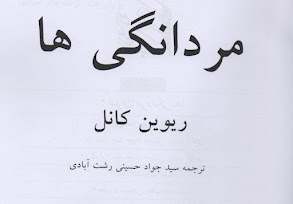Books
Rereading Wallerstein and Applying World-Systems Theory in the 21st Century
by Frank Jacob* What is Immanuel Wallerstein’s legacy for the 21st century? Following the closure of the Fernand Braudel Center for the Study of Economies, Historical Systems, and Civilizations that Wallerstein directed at SUNY Binghampton and the discontinuation in 2016 of Review, the journal he founded in 1976, this is an important question. World-systems theory […]
UNIT: A Legacy in Doctor Who / Down in the London Underground
"We deal with the odd... the unexplained. Anything on Earth... or beyond.”
Candy Jar Books is pleased to announce details of its second and third books celebrating 60 Years of Doctor Who.
<\/a>UNIT: A Legacy in Doctor Who explores the rich history of the United Nations Intelligence Taskforce – and later Unified Intelligence Taskforce – from its inception under producer and writer Derrick Sherwin<\/a>, through the UNIT family days of Jon Pertwee<\/a>’s Doctor, all the way to the Kate and Osgood era of recent years. With UNIT featuring in numerous other media like Reeltime Productions, Big Finish audio, and the Lethbridge-Stewart range from Candy Jar Books, the legacy of UNIT – and its importance to Doctor Who extends beyond its television appearances.UNIT is as much a part of the tapestry of Doctor Who as the Doctor, the TARDIS, or the Daleks. The organisation has been part of the show since the Cybermen first marched down the steps of St Paul’s Cathedral in 1968’s The Invasion<\/a>, and continue to be one of the Doctor’s closest allies in the battle to save humanity from the galaxy’s greatest threats.
Author, Baz Greenland, believes that the UNIT stories really get to heart of what makes good Doctor Who:
I’ve had the honour to write stories in the Lethbridge-Stewart and Lucy Wilson ranges, but this was something quite special. I’m a huge fan of the Jon Pertwee<\/a> era and UNIT is a key ingredient in that. Jon Pertwee<\/a>, Roger Delgado<\/a>, Nicholas Courtney<\/a>, Caroline John<\/a>, Katy Manning<\/a>, Elisabeth Sladen<\/a>, Richard Franklin<\/a> and John Levene<\/a> all bring such warmth and energy to the show and feature in some absolutely terrific episodes – not just Pertwee’s; The Invasion<\/a>, Terror of the Zygons<\/a> and Battlefield<\/a> are all classics in my eye and UNIT are at the heart of that.
Featuring a retro cover by 100 Objects of Dr Who artist Martin Baines, the book features exclusive interviews with writers and actors John Levene<\/a> and Sophie Aldred<\/a>, and explores the development of UNIT, its importance in the Doctor Who mythos and the actors that brought these iconic characters to life – from Nicholas Courtney<\/a>’s stalwart Brigadier Alistair Lethbridge-Stewart to Jemma Redgrave<\/a>’s courageous Kate Stewart.
Baz continued:
It was quite a daunting task to delve into the mythos and creation of UNIT, but it’s been such a treat too. As a big Doctor Who fan, I feel I’ve learned more about the stories, the characters, and the actors that played them and I hope readers of the book will find something new too, that will only strengthen an appreciate for the Brig and UNIT – from 1968, all the way to the modern era as we head into the 60th anniversary of Doctor Who!
<\/a>Candy Jar’s other release propels the reader right back to the Brig’s first appearance in Doctor Who. Written by popular Lethbridge-Stewart, Lucy Wilson and children’s author George Ivanoff, Down in the London Underground takes a sidestep look at the Brig’s first story, The Web of Fear<\/a>
George explained:
The idea struck me when I was browsing a copy of Darth Vader and Son, a Star Wars picture book. And I suddenly thought... Candy Jar could do something like this with the Doctor Who characters and creatures they have the rights to use. So, I wrote a pitch. And Shaun jumped at the chance. The book does not feature the Brig, but instead focuses on the Army as it battles the Yeti in the London Underground.
Although aimed at young people, this picture book tries not to dodge the realities shown in The Web of Fear<\/a>. Head of Candy Jar, Shaun Russell, said:
I am a big fan of the Doctor Who/Mr Men books by Adam Hargreaves and felt that this would be a great way to celebrate Doctor Who’s 60th birthday. This book, however, has a slightly darker side. Death is always present in Doctor Who, and just like Grimms’ Fairy Tales, this story attempts to be a true reflection of the world in which it is set. The Yeti are here to invade, and they take no prisoners.
Down in the London Underground has been also been illustrated by Martin Baines:
I’ve always loved illustrating the Yeti, but this assignment was slightly different. I thought it was very important for my cartoon-like artwork to offset the dark nature of the book. I added a few touches of my own and I hope children and adults will enjoy this chilling adventure.
Both UNIT: A Legacy in Doctor Who<\/a> and Down in the London Underground<\/a> are available to pre-order from Csndy Jar Books.
Java Romance
Reviewed: Sunbirds, Mirandi Riwoe, University of Queensland Press In Mirandi Riwoe’s Sunbirds, her second novel, a Javanese servant called Diah is instructed by her Dutch boss to read a novel called A Java Romance. Indonesia as we know it doesn’t exist yet. It’s 1941, and the Dutch have ruled the archipelago for 350 years. Mr van Hoorn—who suggests Diah read the Dutch novel as ‘good practice’—can’t seem to imagine that the world the Dutch control and administer is poised to end. But to Indonesian nationalists like Diah’s brother Sigit, the upheaval of World War Two signifies one thing: ‘Total […]
The Novel (As Haunted by the Listicle)
Reviewed: Green Dot, Madeleine Gray, Allen & Unwin Sharper observers than I have written on the problems of the quid-pro-quo blurb industry, the lack of critical culture around Australian novels, and the labour conditions that are responsible for this budding dynamic. Such is the environment that produces descriptions of extremely middling work as possessing ‘sheer brilliance’. In this vibes-based environment, Green Dot inadvertently summarises itself midway: ‘The upstairs is a restaurant, with the same gingham tablecloths I imagine they used in The Sopranos, having never watched The Sopranos.’ The novel begins as Hera gets a job as a content […]
Down the QAnon Rabbit Hole
In Trust the Plan, Daily Beast reporter Will Sommer delves into the origins and evolution of the QAnon conspiracy theory movement. His book provides important context for how QAnon gained traction and influenced American politics.
The book in three sentences
- The book examines the rise of the QAnon conspiracy theory, which baselessly claimed Donald Trump was dismantling an elite child-trafficking cabal.
- Reporter Will Sommer tracks QAnon’s origins on fringe sites and growth into a mainstream movement upending U.S. politics.
- Sommer connects QAnon’s rise to broader trends of misinformation, partisanship, and anti-establishment distrust.
Extended Summary
The book explores the beginnings of QAnon on fringe internet forums and its growth into a mainstream conspiracy theory upending politics. Sommer examines the primary actors and events that elevated QAnon along with its false claims and ideological underpinnings.
Sommer traces QAnon’s origins to cryptic online posts from an anonymous individual or group known as “Q” starting in 2017. Q promoted a conspiracy theory claiming Donald Trump was secretly working to dismantle an elite global child-trafficking ring run by prominent Democrats.
The book outlines QAnon’s spread from online message boards to mainstream social media, amplified by far-right activists. Adherents interpreted Q’s vague predictions as proof of the conspiracy. QAnon ultimately incorporated other conspiracies and morphed into an umbrella movement.
Sommer connects QAnon’s rise to broader trends of misinformation, polarization, and declining trust. He highlights how QAnon radicalized Americans and prompted real-world violence. The book concludes with QAnon’s influence on the 2020 election, the Capitol riot, and its endurance despite being an obvious hoax.
Trust the Plan provides a detailed overview of how an outlandish conspiracy theory gained credence with millions of Americans. Sommer’s insightful reporting sheds light on the highly concerning QAnon phenomenon and the growth of extremist movements in modern American politics. The book is an engaging yet alarming read.
Who Should Read
Anyone concerned about the growth of conspiracy theories and extremism in the United States will find the book highly informative. It is a must-read for understanding modern partisan polarization and the QAnon phenomenon.
Key Points
- QAnon originated with obscure online posts from an anonymous poster known as “Q”.
- Viral conspiracy theories and partisanship created conditions ripe for QAnon’s rise.
- QAnon radicalized Americans across the political spectrum as it was amplified by far-right groups.
- Despite promoting disproven claims, QAnon has carved a niche in American politics.
About the Author
Will Sommer is an award-winning reporter for The Daily Beast who has covered internet culture and conservatism. He previously worked at The Hill.
If you’d like to stay on top of areas like this, you should be reading my weekly newsletter. You can follow here or on Substack.
The post Down the QAnon Rabbit Hole first appeared on Dr. Ian O'Byrne.
Hans Sautter’s “Japan”: A Photographer’s Lifework
I’m lucky. I’ve walked through this book many times before.
I’ve strolled through the backstreets of Shibuya on the way to work, past pastel-hued love hotels with fake ivy running up the façade to balustrades that look like they are made of icing sugar.
I’ve seen the dawn come up in Golden Gai, the souk of tiny ramshackle bars that stands as a living monument to the heyday of Japan’s counter-culture in the nineteen sixties and seventies.
My eyes have been blasted by ten thousand fizzing, scrolling invitations to hedonistic excess in the neon wonderland of Kabuki-cho, the largest pleasure district in the country that invented pleasure districts.
I’ve watched a man clutching a briefcase ascend an escalator in a deserted station, as isolated as a figure in a Edward Hopper painting. I have been that man.
That comes from my introduction to veteran photographer Hans Sautter’s magnificent tome, “Japan”. It’s a heavyweight offering in every sense of the word, and constitutes a summary of his life’s work as a professional photographer.
You can find it on Amazon.com, Amazon.co.jp and Amazon.co.uk, as well as in all respectable bookstores.
Hans arrived in Japan on a one way ticket in 1972, attracted by Shuji Terayama’s outrageous and surreal film, Throw Away Your Books, Rally in the Streets. While remaining intimately involved with Japan, he subsequently spent significant time in South East Asia and Australia, where he worked in construction, erecting high-rise steel girders.
In a recent Press Club event, Hans explained his photographic process, revealing the staggering amount of preparation behind each image, which is usually mapped out in his mind long before he arrives at the scene. He insisted on “no Kyoto” and has no captions on the page, though there is an index at the end. Some of the shots were taken in hazardous circumstances as the elements – fire, water and wind – raged.

Copyright: Hans Sautter
The book is organized into six themes, each introduced by an expert commentator and each broad enough to contain polar opposites.
Metropolis offers the structured calm of the Kyu Shiba Rikyu garden and also the pandemonium of the Shinjuku night-life. Within Nature, you see the twisted roots of a primeval forest in Yakushima and also a mountainside covered by an anti-landslide wall that looks like a huge concrete waffle.
Within Aesthetic, you can find austerely beautiful ceramic bowls, ten foot tall transformer robots, the chalky-white neck of a geisha, family crests that have been in use for the best part of a millennium and Hello Kitty, the mouthless feline icon that appears on all kinds of goods, from pencil cases to vibrators.
Costume is a way of telling stories about ourselves, which is a deep-seated human need; the fashion industry is based on it. Hans shows us Japanese people formatting their identity in ways that are light-hearted and deadly serious, as ephemeral as this year’s pop sensation and as long-lasting as Shinto myth.

Copyright: Hans Sautter
Rituals remind us that we are individuals but also social creatures linked to what came before us and what will come after. They are conducted in special places like temples and tea ceremony rooms, but are also part of the ordinary routines of life such as morning calisthenics and ceremonies at school sports days. The Sacred is there to balance the profane. We need them both.
From this stream of events, Hans Sautter has captured moments and patterns, people and objects and natural phenomena in a mosaic of images that will dwell in your mind long after you have put the book down.
‘Updating’ Roald Dahl? It’s the same old story… | David Mitchell
Rewriting the children’s author is about profit not ‘wokeness’ – part of the endless recycling and exploitation of old ideas
James Lovelock remembered by John Gray
26 July 1919 – 26 July 2022
The author and philosopher looks back on his friendship with the creator of the Gaia theory, who was ‘the closest to genius’ of anyone he has met
I first met Jim Lovelock in 1994 when he was staying in Oxford with his devoted wife, Sandy. He was a visiting fellow at what was then Green College. We discussed a whole variety of things on that first meeting, including his Gaia theory, and I came away hugely impressed by the extraordinary fluidity of his mind, which ranged over many, many disciplines. I’ve met some very clever people, but I think he was closest to genius. He said he benefited from never having a regular university post; he never had to specialise. He used to tell me he got his schooling as a boy from Brixton public library and visits to the Science Museum.
I’d read Gaia when it came out and been very impressed by it. Partly because contrary to what many people claimed it seemed to me both rigorously scientific and rigorously Darwinian. Jim believed life was closely interconnected, and in some ways self-regulating. Some of the more mechanistic Darwinists, Dawkins and others, objected to that. Others wanted to find a mysticism in the idea of Gaia, but that was never there.
"Masculinities", Persian

I'm very pleased to let people know that a translation of my book "Masculinities" into Persian (Farsi) has just been published. Coming soon, to a bookshop near you!
There are also translations of this book into Italian, German, Swedish, Spanish, Chinese, Hebrew, Slovenian, Hungarian, Korean and French.
Some recent publications

Connell, Raewyn. 2020. Veinte años
después: Masculinidades hegemónicas y el sur global. Pp. 37-58 in Sebastián
Madrid, Teresa Valdés and Roberto Celedón, ed., Masculinidades en América
Latina: Veinte años de estudios y políticas para la igualdad de género,
Santiago de Chile, Universidad Academia de Humanismo Cristiano.
This book comes from a terrific conference
in Santiago, Chile, which brought together researchers on masculinities from
across Latin America, to discuss the last twenty years' work on this topic. My chapter
is based on the keynote address I gave - remotely, I regret to say - discussing
'hegemonic masculinities and the global South'.
Connell, Raewyn. 2020.
Linguistics and language in the global economy of knowledge: a commentary. Pp.
150-157 in Ana Deumert, Anne Storch and Nick Shepherd, ed., Colonial and
Decolonial Linguistics: Knowledges and Epistemes. Oxford: Oxford University
Press.
A group of linguists have brought
together a fascinating set of studies on the coloniality of knowledge in the
discipline of linguistics, with particular attention to Germany. They asked
some colleagues to write commentaries on groups of chapters in the book, and
this is my contribution.
Connell, Raewyn. 2021. Transgender health: on a
world scale, Health Sociology Review, vol. 30 no. 1, 87-94, DOI: 10.1080/14461242.2020.1868899
The journal Health
Sociology Review has just published a special issue on studies in transgender
health. I was asked to write a commentary, and took the opportunity to reflect
on how the issues of trans health might appear if we prioritised experience and
knowledge from the global South. The
paper might still be available on open access here: https://www.tandfonline.com/doi/full/10.1080/14461242.2020.1868899
If a reader would like to see
any of these pieces and can't get hold of it, please contact me at
raewyn.connell@sydney.edu.au, and I'll do what I can.
@font-face
{font-family:"Cambria Math";
panose-1:2 4 5 3 5 4 6 3 2 4;
mso-font-charset:0;
mso-generic-font-family:roman;
mso-font-pitch:variable;
mso-font-signature:-536870145 1107305727 0 0 415 0;}@font-face
{font-family:Calibri;
panose-1:2 15 5 2 2 2 4 3 2 4;
mso-font-charset:0;
mso-generic-font-family:swiss;
mso-font-pitch:variable;
mso-font-signature:-536859905 -1073732485 9 0 511 0;}@font-face
{font-family:"Bookman Old Style";
panose-1:2 5 6 4 5 5 5 2 2 4;
mso-font-charset:0;
mso-generic-font-family:roman;
mso-font-pitch:variable;
mso-font-signature:647 0 0 0 159 0;}@font-face
{font-family:õ_¬˛;
panose-1:2 11 6 4 2 2 2 2 2 4;
mso-font-alt:Calibri;
mso-font-charset:77;
mso-generic-font-family:auto;
mso-font-pitch:auto;
mso-font-signature:3 0 0 0 1 0;}p.MsoNormal, li.MsoNormal, div.MsoNormal
{mso-style-unhide:no;
mso-style-qformat:yes;
mso-style-parent:"";
margin:0cm;
mso-pagination:widow-orphan;
font-size:12.0pt;
font-family:"Calibri",sans-serif;
mso-ascii-font-family:Calibri;
mso-ascii-theme-font:minor-latin;
mso-fareast-font-family:Calibri;
mso-fareast-theme-font:minor-latin;
mso-hansi-font-family:Calibri;
mso-hansi-theme-font:minor-latin;
mso-bidi-font-family:"Times New Roman";
mso-bidi-theme-font:minor-bidi;
mso-fareast-language:EN-US;}.MsoChpDefault
{mso-style-type:export-only;
mso-default-props:yes;
font-family:"Calibri",sans-serif;
mso-ascii-font-family:Calibri;
mso-ascii-theme-font:minor-latin;
mso-fareast-font-family:Calibri;
mso-fareast-theme-font:minor-latin;
mso-hansi-font-family:Calibri;
mso-hansi-theme-font:minor-latin;
mso-bidi-font-family:"Times New Roman";
mso-bidi-theme-font:minor-bidi;
mso-fareast-language:EN-US;}div.WordSection1
{page:WordSection1;}

